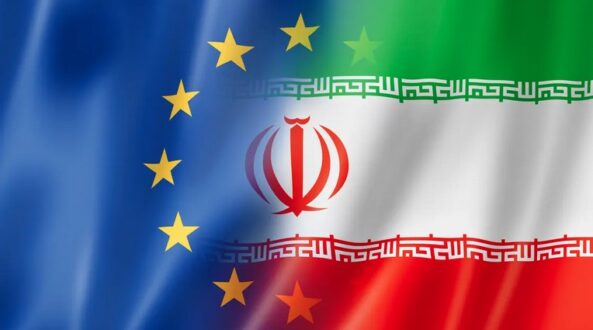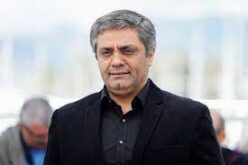Al-Monitor – One year on from Iran’s protests against the death of 22-year-old Mahsa Amini in police custody and the subsequent bloody crackdown by authorities, European views have hardened toward the Islamic Republic, but nuclear policy has barely been affected by the unrest.
Amini’s death in police custody on Sept. 16, 2022, sparked waves of protests across the country against the regime of Supreme Leader Ayatollah Ali Khamenei over alleged human rights violations and attitudes toward women. Many female protesters removed their hijabs or cut their hair at the demonstrations. Iran’s notorious morality police ruthlessly cracked down on dissenters, killing at least 476 people. The European Union and the United States sanctioned the morality police shortly after.
Damaged relations
Henry Rome, senior fellow at the Washington Institute for Near East Policy, believes that there is no doubt that the protests — combined with Iran’s military support for Russia in Ukraine — shifted elite opinion in many European capitals.
“Yet the protests did not lead to a fundamental reassessment in Europe on issues like the nuclear deal, which European governments and the EU still by and large support,” Rome told Al-Monitor. The talks last fall “fell apart because Iran refused the offer on the table,” he said. The protests have made it “politically more costly to revive a deal, although European governments remain supportive of it.”
Jason Brodsky, a nonresident fellow at the Middle East Institute, believes that European views have hardened considerably since Amini’s death. He agrees with Rome that the one event that most fundamentally altered European threat perceptions has been Iran’s supply of drones to Russia for use against Ukraine.
“We are now seeing tranches of sanctions levied regularly on the Islamic Republic in the EU and the UK,” Brodsky told Al-Monitor. “Before September 2022, EU sanctions tranches had been levied only twice since 2013. So that is a significant change.”
The protests also led to Europe distancing itself from any normalization with Iran. Ali Hashem, a journalist and research fellow at Lancaster University, told Al-Monitor that without a revived nuclear deal, Europe “will always be in the position to help in conveying US messages to Iran, but I don’t see any moves toward changing the rules of engagement drastically.”
Reducing tension
More unrest around the anniversary of the Amini protests will only weaken Europe’s relationship with Iran. Despite this, Iran appears to be signaling to Europe and the United States that it is looking to de-escalate nuclear tensions.
Kelsey Davenport, director for Nonproliferation Policy at the Arms Control Association, noted that Washington and Tehran have been working on an unofficial “mini-deal” that involves US ally South Korea unfreezing some of Iran’s financial assets, as well as a prisoner exchange between the Islamic Republic and the United States. There will also be more opportunities for diplomacy on the sidelines of the UN General Assembly in New York next week.
“I think these steps, alongside what appears to be a broader easing of tensions in the region, is an opening that the United States and the Europeans need to try to take advantage of to further de-escalate tensions,” Davenport said.
Post-JCPOA era
An upcoming source of friction for EU-Iran relations is the Joint Comprehensive Plan of Action’s “transition day” in October, under which Europe will retain a number of important sanctions in defiance of its obligations under the 2015 accord. It is not known how Iran will respond to this decision.
The three components that are expected to take effect on Oct. 18 include a provision that Iran is “called upon not to undertake any activity related to ballistic missiles designed to be capable of delivering nuclear weapons.” The second is the requirement for UN Security Council permission before countries transfer weapons to or from Iran. The final one is the requirement that all UN member states freeze the assets of 23 individuals and 61 entities involved in Tehran’s nuclear and ballistic missile programs.
When these sanctions expire, the United States and Europe will likely implement similar national sanctions. Although full “snapback” sanctions on Iran are unlikely, they remain on the table. The UN Security Council resolution remains in effect through October 2025, but Tehran has breached it many times.
“There will still be a window where the UK or France could restore UN restrictions on Iran, and I think they will probably continue to send a powerful message to Iran that there will be consequences if Iran expands its military assistance to Russia and follows through on reports to transfer missile technology,” Davenport said.
France and the UK are the two European members of the UN Security Council that have strictly sanctioned Iran. Opposition by fellow council members China and Russia would not stop the sanctions being restored during this period.
 Shabtabnews In this dark night, I have lost my way – Arise from a corner, oh you the star of guidance.
Shabtabnews In this dark night, I have lost my way – Arise from a corner, oh you the star of guidance.



